0:01-23:08: Greetings from Graeme “Burp!” McMillan and Jeff “Saliva!” Lester, where your two faithful podcasters are here at your service, despite problems with taxes, and talking, and breathing. Thanks to tax prep, we look back at the state of digital affairs for Jeff’s library with talk about the amazing month of March and April 2018; do a quick review of the state of comic streaming services we use and what’s changed about them; more singing of the praises of Hoopla (for comics, anyway); whether Jeff should get the DC Universe app, and more.
23:08-35:50: From there, a sort of strange left turn: the new redband trailer for Hellboy resurfaces a tweet from B.P.R.D. and Hellboyverse writer John Arcudi. Did Arcudi leave Hellboy and B.P.R.D. (and Guy Davis leave comics altogether) based on how they were handled and/or (un)compensated in relation to this? The Magic Eightball says “All Signs Point To ‘Comics Will Break Your Heart.’” Also discusssed: reaction to the original trailer; reaction to rough cuts of the film; Vague Recollections of Forgotten Dinner Parties; the filmography of Neil Marshall; the strangeness of having people hype things that don’t seem like what they’re hyping; and more.
35:50-53:52: The Hellboy thing may leave a bad taste in your mouth if you’re a B.P.R.D. fan, but Jeff’s not really into it or Hellboy. He is, of course, alternately appalled, guilty about, and mystified by the Wikipedia summary of Doomsday Clock, Geoff Johns and Gary Frank taking the Watchmen characters into the DCU. Graeme has read issue #9 of the book (not out until later this week so Graeme does superhuman work in trying to avoid spoilers of any kind) and we discuss what’s come before, what might be coming next, and what Johns is trying to say (apart from “back up the money truck”).
53:52-1:01:51: And from our discussion about narrative jumps, Jeff goes on to mention the first five issues of Exorsisters by the talented team of Ian Boothby and Gisele LaGace. Jeff is heavily in the tank for these two, so what did he think of the book? The answer may surprise you…or at least baffle you? (Jeff is clearly baffled, as you’ll hear.) Jeff summarizes the book, talks about its charms, and entreats Graeme to read the issues so we can talk about it more.
1:01:51-1:04:57: Jeff’s got a throughline in mind as he transitions from Exorsisters to Action Comics #1008 by Brian Michael Bendis and the terrific Steve Epting. (Jeff really didn’t talk about it here, but man does Epting’s stuff look gorgeous on the DC characters!) That throughline, fortunately or unfortunately, tiptoes around Crabby Jeff and tries to hew close to the path of Diplomatic Jeff. (There’s also an all-too-brief shoutout to Satoru Noda’s Golden Kamuy, which is still flat-out excellent.)
1:04:57-1:53:43: Part of why Epting and Noda get short-shrift is Graeme chimes in with his experience about catching up on Tom King’s Batman, which Graeme hadn’t read since September. There’s been some grumbling about the pacing and storytelling choices King has made with the title since issue #50—do those grumblings have merit for someone reading all those issues in a oner? (1er?) Also discussed: Heroes in Crisis #6; subtext becoming text; the futility of a work-for-hire creator as embodied in a work-for-hire creation; Batman RIP; Mortal Kombat and common ground; movie violence in the ‘80s; and, quite obviously, us back to circling around Doomsday Clock again (ha, “circling!”)
1:40:15-1:53:43: Graeme still hasn’t seen Aquaman! But that may well be rectified *very* soon, thank goodness. And Jeff re-saw Spider-Man: Into The Spider-Verse, and has a lot of thoughts about, many of which are informed by…Natalie Nourigat’s I Moved to Los Angeles to Work in Animation? Really? Warning: big ol’ spoilers for the movie and in-depth descriptions so take a pass if you haven’t yet seen this (really excellent) film.
1:53:43-2:05:35: Graeme has picked up a bunch of old 80 pg. dollar Superman Family comics, describes ‘em for our delight, and sings the praises of low-stakes/no-stakes comics.
2:05:35-2:20:21: As for Jeff and the old comics routine, thanks to the wonderful David Wolkin, Jeff has read issue #131 of Dark Horse Presents from 1998, and issues #1 and #2 of Nightmares from Doug Moench, Paul Gulacy, and Don McGregor, published by Eclipse all the way back in 1985!
2:20:21-2:37:33: News? Well, maybe there’s some somewhere, but the only stuff we can think of worth mentioning is, as Graeme rightly points out, everyone should check out the trio of speeches given at ComicsPro by ex-DC Marketing Director Bob Wayne, and retailers Brian Hibbs and Joe Field. And there’s also a bit of a lazy roundup of stories, or maybe as much roundup as a week that includes “Marvel Meow.”
2:37:33-end: Closing comments! Look for us on Stitcher! Itunes! Instagram! Twitter together and separately: Graeme and Jeff! Matt! Tumblr, and on Patreon where a wonderful group of people make this all possible, including Empress Audrey, Queen of the Galaxy, to whom we are especially grateful for her continuing support of this podcast.
NEXT WEEK:

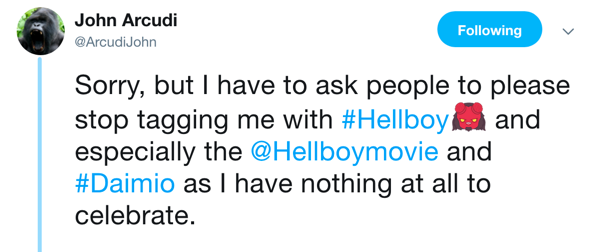

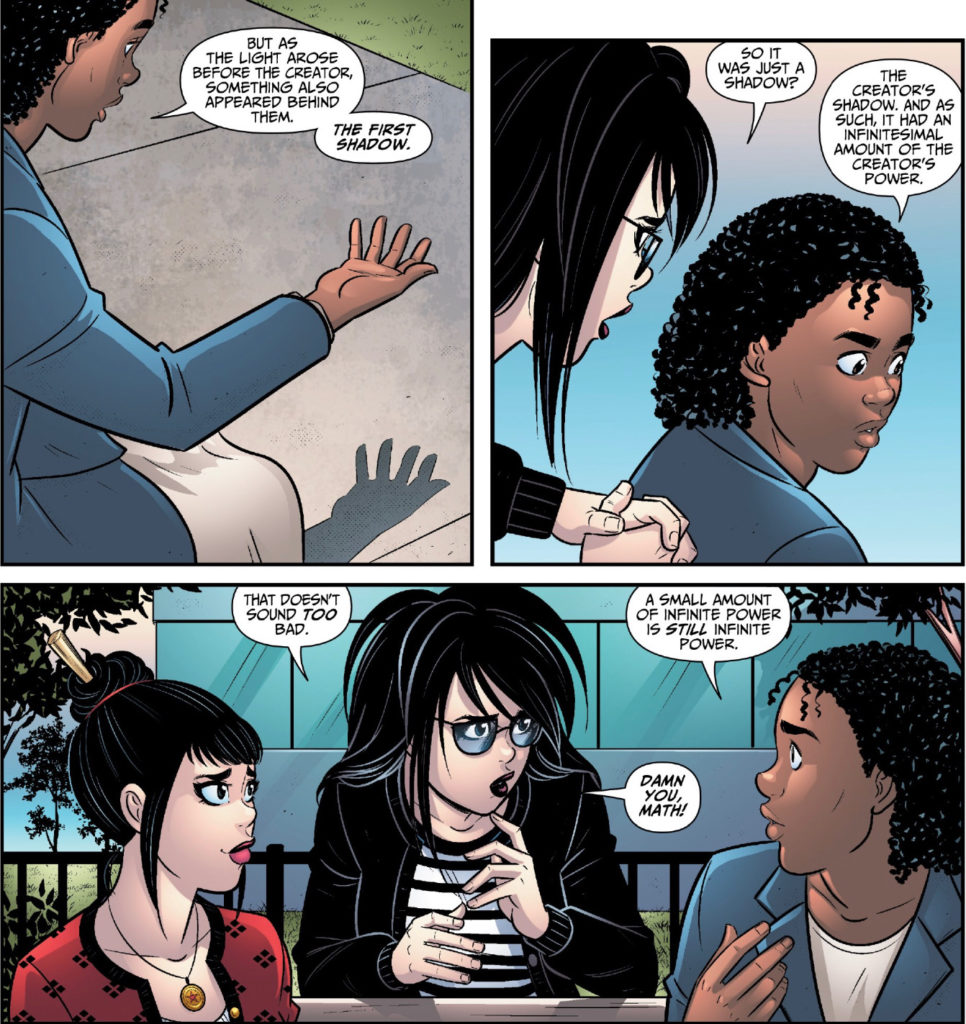
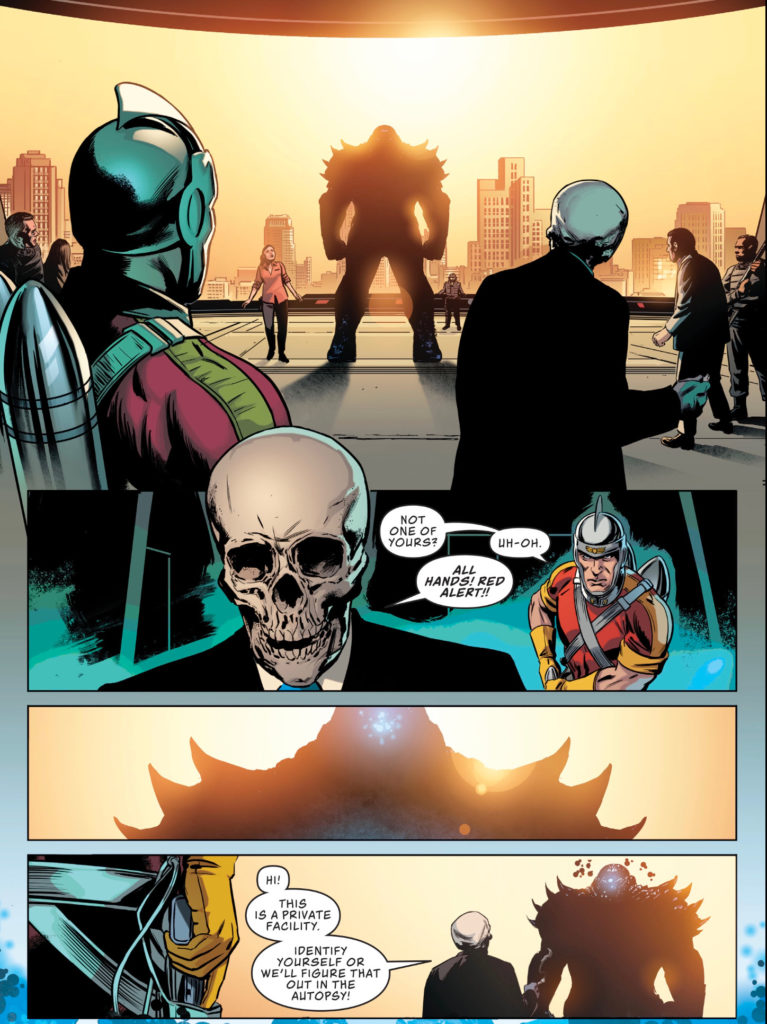
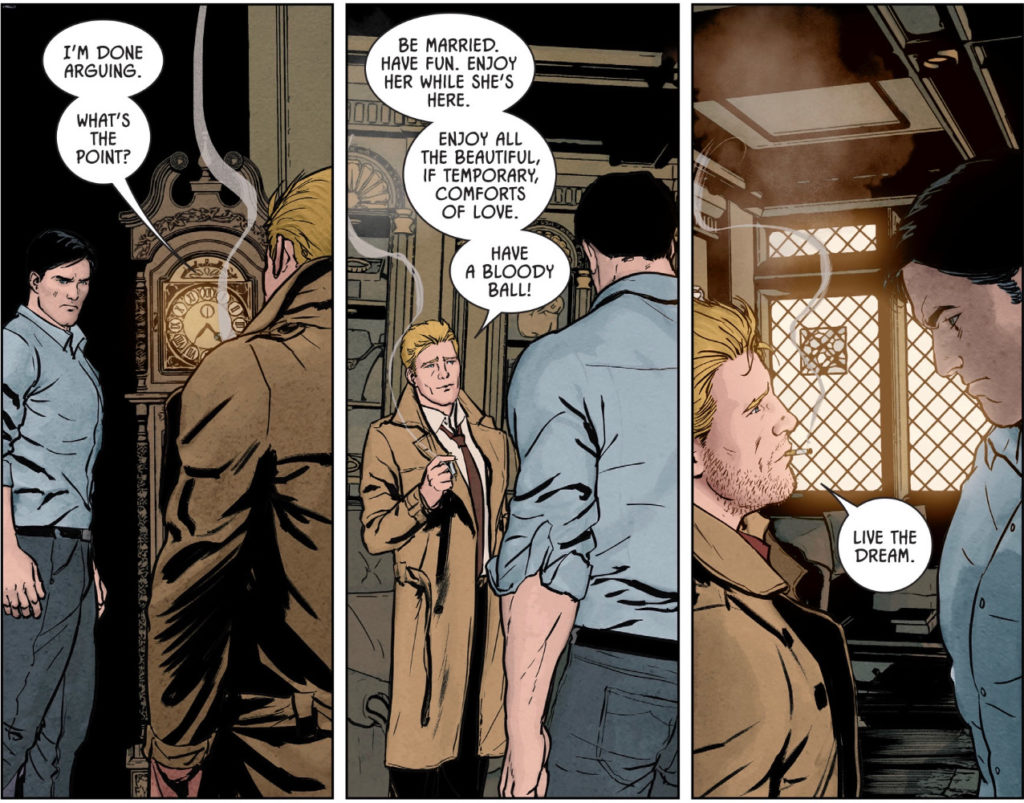

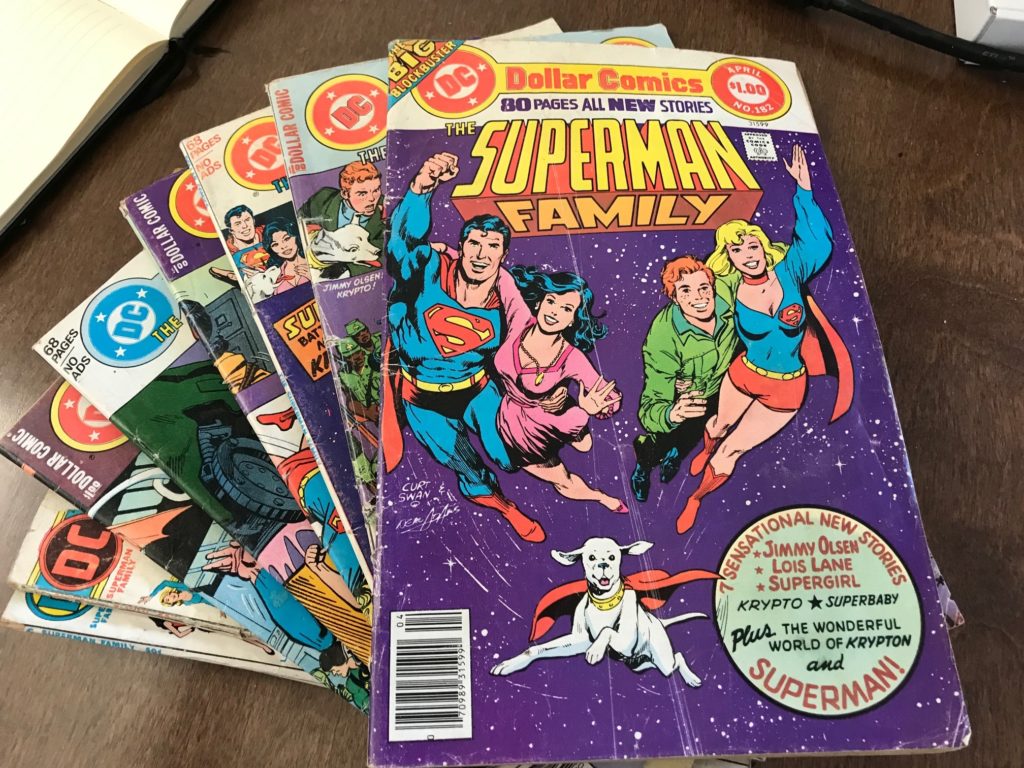
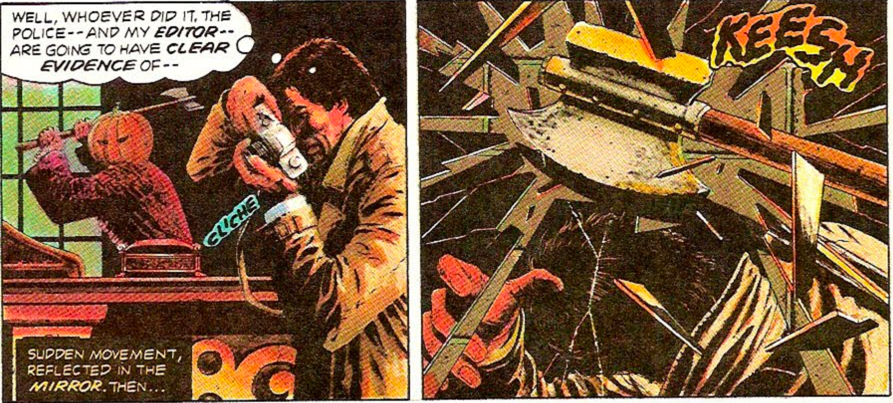
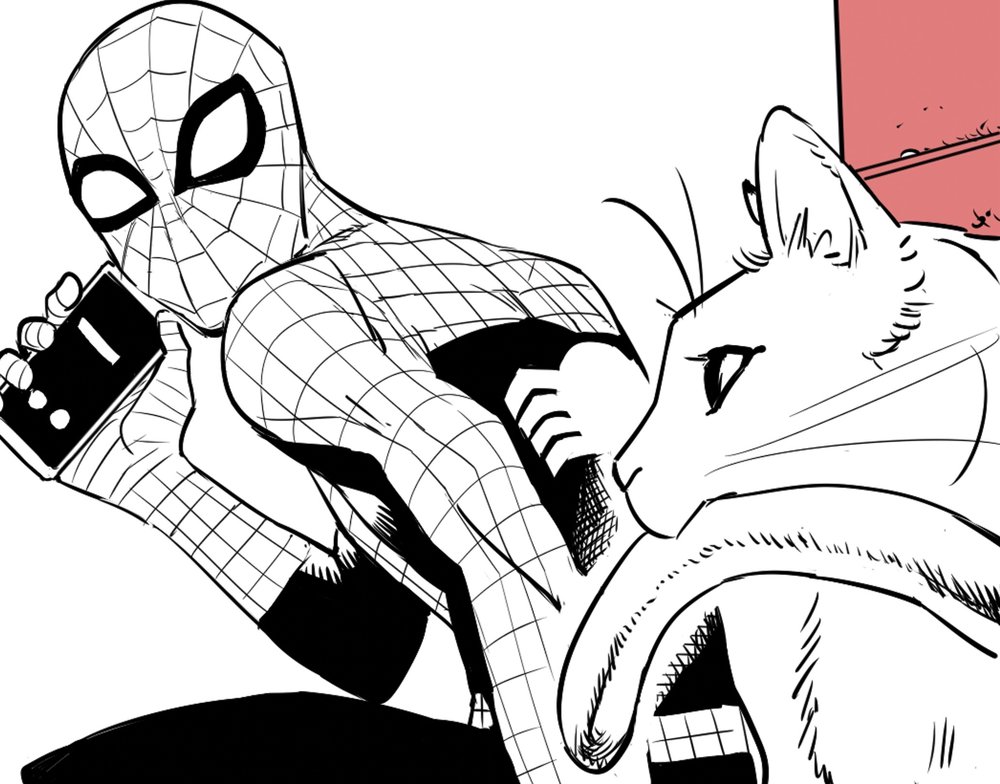
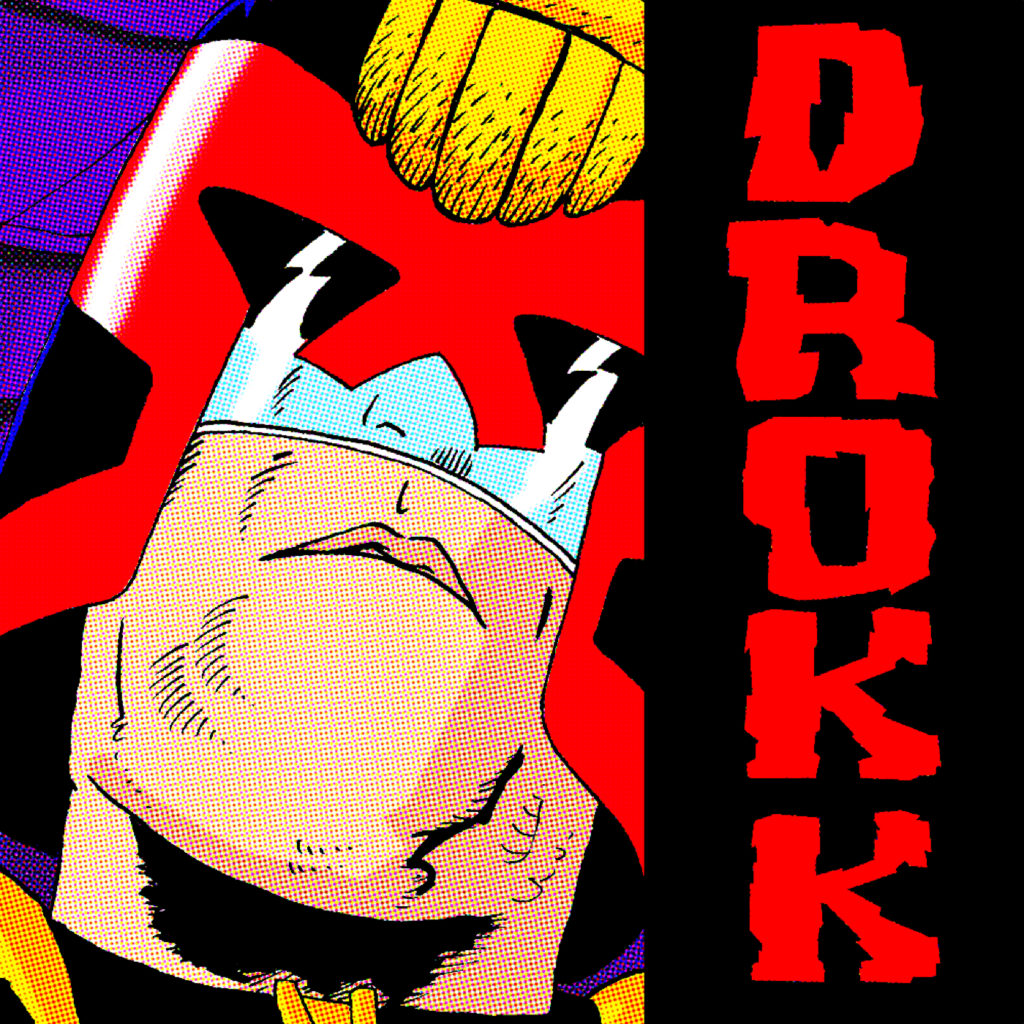


And for the ol’ cutto/pasteo:
http://theworkingdraft.com/media/podcasts3/WaitWhat266.mp3
I haven’t finished the episode yet, but I want to back up Jeff–I distinctly remember reading that Mortal Kombat quote in an interview with Geoff Johns.
This is a pretty good one– I really enjoyed this one. I really enjoyed how Spiderverse was about an artist finding himself through an inclusive vision of pop culture, but I missed or at least under-noted the familial angle Jeff talked about, so I enjoyed that bit. Plus, I didn’t know about that BPRD drama but thanks for highlighting that– !!! And that Watchmen talk was fun for me. So yeah, thanks for this episode…
Incidentally, I couldn’t tell from what you were saying at the beginning, but if you’re trying to track spending, there are tracking services online that are pretty good about that. You link them up to whatever account you use, and they auto-gather and auto-sort the info, so you can see where your money goes, by category group (e.g. housing, entertainment, etc.). It’s pretty neat stuff, if you’re into the whole crippling-guilt / constant self-flagellation lifestyle.
I find Mint particularly useful, if you’re trying to tie together bank accounts, retirement, brokerage, mortgage, car, credit card, etc. Once you get it set up, you can go one place to see all your finances and spending patterns. Sorry that sounded like an ad, been using it for years and really like it.
Hoopla’s audiobook selection is pretty good if you’re into crime and detective novels. The have complete or almost-complete series by Lawrence Block, Dennis Lehane, Ross Macdonald, Agatha Christie, and a few other big names. Their movie selection is pretty poor overall, but they occasionally get really recent foreign-language releases like “Burning” or “Shoplifters” before any of the other streaming services.
I really enjoyed Jeff’s take on Into The Spider-Verse, and I look forward to his inevitable Doomsday Clock rant. I’m halfway through “The Cursed Earth” now, and definitely looking forward to next week’s “Drokk!”
Curious if you guys are going to talk about the whole censored mascot thing from Cursed Earth.
I could be wrong but I think the Marvel story Jeff was trying to remember was this (instead of Marvel Meow):
https://www.comicsbeat.com/marvels-shocking-history-of-promoting-itself-at-sxsw/
Graeme is wrong. I am only a pretty good person, and I am in fact hated by several.
Not sure why you would consider Battling about Bendis as a subtitle or theme for the show, when it should clearly be Battling about Batman.
Not that this is a complaint (it’s not, though I’m like 6 volumes behind on King’s Batman – I let it fall by the wayside over the last year in favor of reading the damned entirety of One Piece along with my son and daughter, and frankly am very much at peace with that decision).
I have to say, I found the Doomsday Clock discussion pretty tough to sit through. The elephant in the room seems to me that no matter how you feel about Moore (or even rate his work relative other writers), he’s objectively better equipped than Johns to interrogate the politics of superheroes and superhero fandom.
First, and I can’t stress this enough. Moore is/was the far better craftsperson. Objectionable content and motifs aside, I don’t think anyone would consider Moore and Johns on the same level. This doesn’t make Johns a bad writer, or even that he might not be able to a comic that’s better than some other Moore comic. But it seems like you need to acknowledge that Johns has nothing comparable to Watchmen, From Hell, or even Swamp Thing in his portfolio before you can make an honest comparison.
Second, Johns quite literally represents the comics/entertainment complex that he’s nominally interrogating. It seems weird to elide this, too. We’re talking about a comic written by a company man about a comic written by a guy who feels betrayed by the company. A discussion of who is in the better position to weigh in on the promise and perils of superheroes and their shared universes should maybe acknowledge this?
I hope this doesn’t seem too cranky, and I don’t want to discourage you guys from having these sorts of conversations. This one just strikes me as a missed opportunity.
I have to say that I agree. I generally agree with a lot of Graeme McMillan’s views about Alan Moore, and I’d love to say that I can see the insightful and deep Geoff Johns that he sees: the Anti-Moore, who is all about using his writing to articulate a respect for superheroes as an idea. But it’s a counter-intuitive take too far for me.
Grant Morrison, yes, completely. But with Johns, I just can’t see his writing as being about exploring superheroes as an idea at all — I think his hero-worship of e.g. Hal Jordan might actually just be hero-worship.
Yeah, these are great points. I would add that “comics should recover their sense of wonder” is not a particularly new or complex commentary on comics–in fact, it’s not really a commentary at all so much as the DC house line (even as they continue to periodically strip-mine their history and up the gratuitous violence). How much credit should Johns get for narrativizing the company marketing strategy?